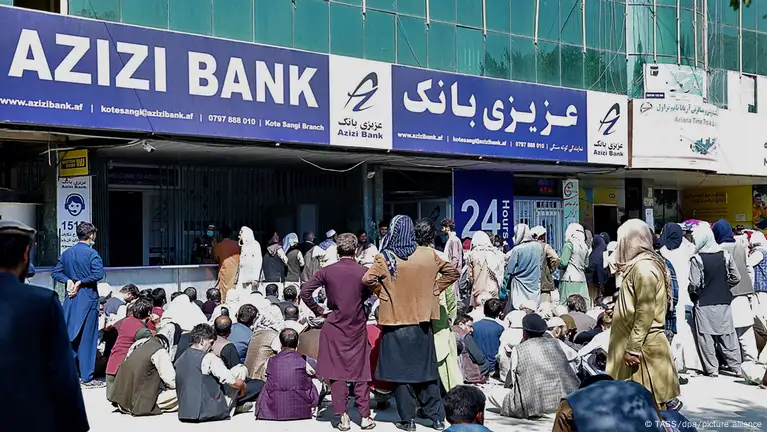RASC News Agency: In recent days, a series of internet shutdowns has crippled banking services in several Afghanistani provinces, including Balkh, Herat, Kandahar, and a number of northern cities. Private banking sources report that the suspension of Wi-Fi services has caused widespread disruptions in financial operations, leaving thousands of citizens unable to access their accounts or carry out essential transactions.
The consequences have been immediate and severe. In multiple branches, rising frustration between customers and bank employees has erupted into heated arguments, with some incidents escalating into physical confrontations. For many citizens, already living under immense economic strain, the disruption of banking services has become yet another layer of hardship imposed by the Taliban’s authoritarian policies.
In Mazar-e-Sharif, the provincial capital of Balkh, local sources confirmed that Taliban-appointed governor Mawlawi Yousuf Wafa ordered temporary exemptions for banks, allowing them limited internet access in an attempt to ease the crisis. Yet according to employees of private banks, this exemption was short-lived lasting barely three hours before connectivity was once again severed. The abrupt reversal has reinforced perceptions of inconsistency and dysfunction in the Taliban’s governance, where arbitrary decrees override stability and institutional continuity.
Earlier this week, the Taliban imposed a blanket suspension of internet services across at least five provinces, cutting off not only private communications but also essential government operations. Facing growing internal backlash, the governor of Balkh later issued exemptions for the electronic ID department and several other state institutions, but such piecemeal measures have failed to address the deeper crisis unleashed by the blackout.
The severity of the situation has forced the Taliban’s own bureaucracy into alarm. Only days before the blackout, a delegation from the Ministry of Economy, joined by senior officials from the Ministry of Finance and the central bank, traveled to Kandahar to meet with Taliban leader Hibatullah Akhundzada. According to informed sources, the delegation explicitly warned that halting high-speed internet would paralyze critical state functions, given that most financial and administrative services now operate online. Their concerns, however, appear to have been sidelined in favor of the regime’s obsession with control and censorship.
For ordinary Afghanistani citizens, the consequences are devastating. Salaries remain frozen in banking systems, remittances from abroad cannot be processed, and basic transactions from paying for goods to transferring money for medical emergencies have become impossible. “We waited for hours in the bank, but nothing could be done because the system was down,” said Ahmad (a pseudonym), a Kabul resident who spoke to RASC. “People are angry and desperate, but the Taliban officials seem more concerned with shutting down the internet than with helping citizens survive.”
Analysts argue that the Taliban’s erratic and repressive governance model has once again exposed its fundamental incompetence. Instead of addressing the country’s mounting humanitarian and economic crises, the regime has resorted to blunt instruments of control crippling communication, undermining institutions, and eroding the last vestiges of public trust. By weaponizing internet access, the Taliban has not only destabilized the financial sector but also confirmed to Afghanistani citizens and the wider world that its priorities lie in authoritarian repression rather than national recovery.






